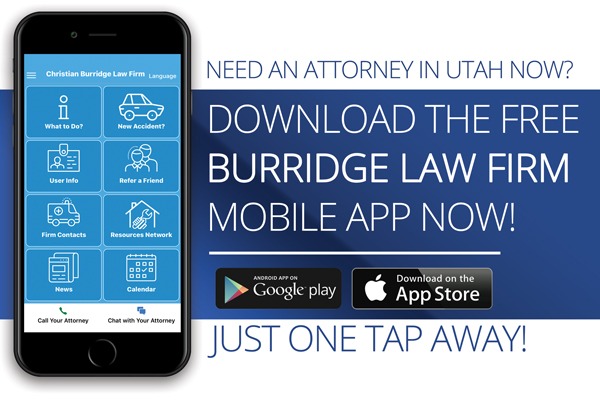When a fatal car accident occurs, determining liability becomes crucial for families seeking justice. Multiple parties may bear responsibility, and understanding potential liability helps families pursue full compensation for their loss.
Understanding Driver Liability
The most obvious source of liability in fatal car accidents stems from driver negligence. Negligent driving takes many forms that can result in fatal accidents. Distracted driving, particularly texting while driving, has become increasingly common in recent years. When drivers take their attention from the road to read messages or type responses, they create dangerous conditions that can lead to fatal crashes.
Impaired driving, whether from alcohol, illegal drugs, or even prescription medications, significantly increases accident risk. These drivers face both criminal charges and civil liability for deaths they cause. Evidence of impairment strengthens wrongful death claims and may support additional punitive damages.
Aggressive driving behaviors, including speeding, tailgating, or running red lights, demonstrate a disregard for others’ safety. When these actions result in death, the aggressive driver bears clear liability for the consequences of their choices.
Employer Responsibility
When commercial vehicles are involved in fatal accidents, employer liability often comes into play. Companies must ensure their drivers are properly qualified, trained, and supervised. They must also maintain their vehicles and follow federal safety regulations.
If a truck driver causes a fatal accident while on duty, their employer may be liable through various legal theories. Direct negligence in hiring, training, or supervision can create liability. Companies also bear responsibility for their employees’ actions under respondeat superior doctrine, which holds employers responsible for employees’ negligent acts within the scope of employment.
Vehicle Manufacturer Liability
Defective vehicles or parts sometimes contribute to fatal accidents. Manufacturers have a duty to produce safe vehicles and promptly address known defects. When manufacturing defects, design flaws, or inadequate warnings contribute to fatal accidents, manufacturers may bear liability.
Recent years have seen numerous vehicle recalls for safety issues like faulty airbags, defective ignition switches, or brake problems. When manufacturers delay addressing known problems, they may face liability for resulting deaths.
Government Entity Responsibility
Road design, maintenance, and signage issues sometimes play roles in fatal accidents. Government entities responsible for road safety may face liability if their negligence contributes to fatal crashes. Poor road maintenance, inadequate warning signs, or dangerous design elements can create hazardous conditions leading to fatal accidents.
However, claims against government entities involve special rules and shorter deadlines. Understanding these requirements proves crucial for preserving families’ rights to compensation.
Multiple Party Liability
Many fatal accidents involve multiple contributing factors and responsible parties. A thorough investigation often reveals various forms of negligence that combined to cause the death. For example, a fatal crash might involve a distracted driver, a vehicle with defective brakes, and poor road conditions.
Understanding all potential sources of liability helps ensure families pursue full compensation from all responsible parties. This becomes particularly important when a single defendant lacks sufficient insurance or assets to fully compensate the loss.
Special Circumstances
Certain situations create additional liability considerations. Ride-sharing services like Uber or Lyft have complex insurance requirements that vary depending on the driver’s status at the time of the accident. Construction zones present unique hazards and may involve liability from construction companies or traffic control providers.
Investigating Liability
Determining liability requires thorough investigation and evidence gathering. Important evidence includes:
Police reports provide initial accident details and preliminary fault determinations. However, these reports may not capture all contributing factors.
Vehicle data recorders, similar to airplane black boxes, can provide crucial information about speed, braking, and other factors immediately before the crash.
Surveillance footage from nearby businesses or traffic cameras may capture the accident sequence.
Witness statements help establish how the accident occurred and identify contributing factors.
Physical evidence at the accident scene, including skid marks, vehicle damage patterns, and road conditions, helps reconstruct the accident sequence.
Insurance Coverage Issues
Understanding available insurance coverage affects liability claims. Most drivers carry liability insurance, but coverage limits may prove insufficient in wrongful death cases. Additional coverage might come from:
Umbrella policies provide extra liability coverage beyond standard auto insurance limits.
Commercial policies for business vehicles typically offer higher coverage limits.
Underinsured motorist coverage from the deceased person’s own policy may provide additional compensation when the at-fault driver lacks sufficient coverage.
Take Action to Protect Your Rights
If you’ve lost a loved one in a car accident, understanding liability helps pursue the compensation your family deserves. Our experienced wrongful death attorneys provide:
Immediate Support
✓ 24/7 Emergency Response ✓ Accident Scene Investigation ✓ Evidence Preservation ✓ Witness Interviews ✓ Insurance Communication ✓ Family Advocacy
Comprehensive Service
We handle all aspects of your case:
- Thorough Investigation
- Expert Consultation
- Liability Analysis
- Insurance Claims
- Settlement Negotiation
- Court Representation
Contact Us Today
Don’t let critical evidence disappear or legal deadlines pass. Our experienced team stands ready to:
- Evaluate your case
- Identify liable parties
- Preserve evidence
- Protect your rights
- Pursue maximum compensation
Dedicated Family Support
Schedule your free consultation now:
- No Cost Evaluation
- Home/Hospital Visits
- Evening/Weekend Appointments
- Clear Communication
- Proven Results
- No Fee Unless We Win
Let our family help yours during this difficult time. Contact our wrongful death team today to understand your rights and options.
Disclaimer: This information provides general guidance only and does not constitute legal advice. Each accident case presents unique circumstances. Consult qualified legal counsel for advice specific to your situation.



